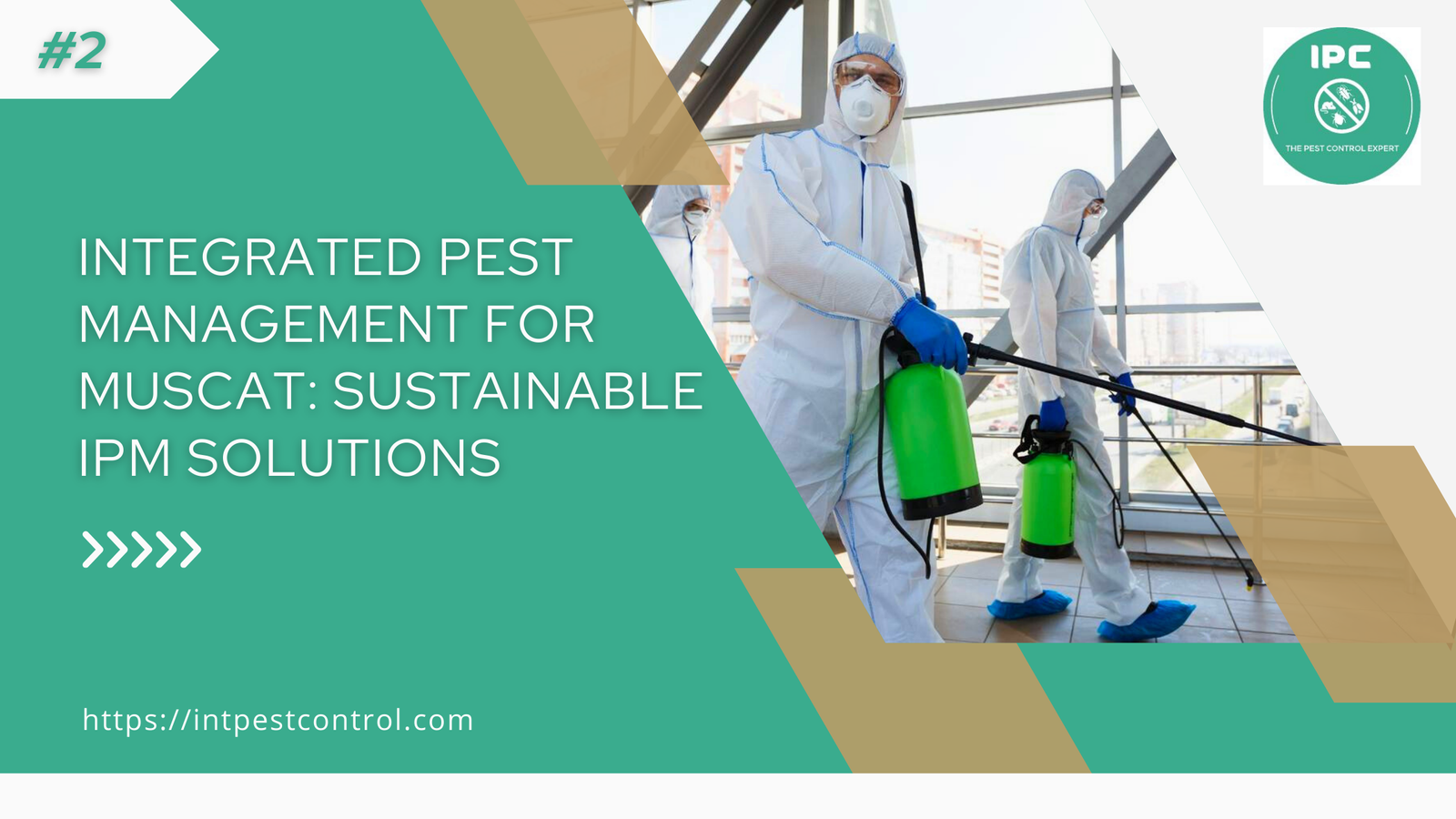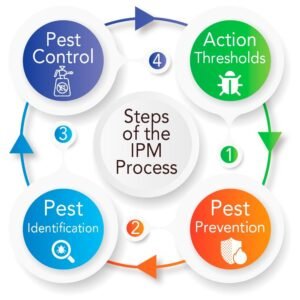- +968 7885 5880
- +968 7154 5907
- info@Intpestcontrol.com
shibin mj
August 25, 2025

Picture this: a lush date palm grove near Muscat quietly under siege by the resilient red palm weevil. Traditional methods may fail, but a holistic lens reveals smarter, sustainable solutions. Welcome to Integrated Pest Management for Muscat—a community-inspired, eco-friendly roadmap for managing pests in our unique environment.
In this post, we’ll explore how IPM applies to both agriculture and homes in Muscat. We’ll combine solid research, regional expertise, and personal stories to shed light on how your garden, farm, or household can benefit from savvy, sustainable pest control.

From date palms threatened by red palm weevils to common pests like rodents or mosquitoes, Merely spraying chemicals isn’t enough. IPM encourages understanding pest ecology and employing tailored solutions that adapt to Muscat’s climate and biodiversity.
IPM fosters healthier ecosystems—critical in preserving water quality and native plant life. Organizations like the Rainforest Alliance promote IPM to enhance ecosystem resilience and reduce pesticide reliance, underscoring its relevance for Oman’s long-term sustainability
Studies in nearby regions show that IPM adoption significantly reduces losses to pests—farmers using IPM reported 41.7% less economic damage. That kind of cost-saving can apply to Muscat’s date production and small-scale urban gardens alike
Know your enemies—track what pests are active, and when.
Local businesses like International pest control Muscat offer IPM-specific solutions informed by regional knowledge
Use proper sanitation, crop rotations (for agricultural areas), or structural maintenance (for homes).
Educational programs and Farmer Field Schools (FFS) promote IPM know-how, making them ripe for adaptation in Oman’s farming communities.
Employ barriers, traps, sticky boards, manual removal, or habitat modifications to deter pests.
Encourage natural defenders—for example, using flowering plants to attract beneficial insects (as shown in IPM gardens globally).Wikipedia
Only resort to chemical treatments when thresholds are exceeded, using targeted, low-impact products.
Such selective use prevents resistance development and protects non-target species.
Maintain logs of pest incidences, interventions, and observations.
Regular evaluation helps refine strategies—what worked? What didn’t? Lessons big and small make IPM smarter over time.
In this post, we’ll explore how IPM applies to both agriculture and homes in Muscat. We’ll combine solid research, regional expertise, and personal stories to shed light on how your garden, farm, or household can benefit from savvy, sustainable pest control.